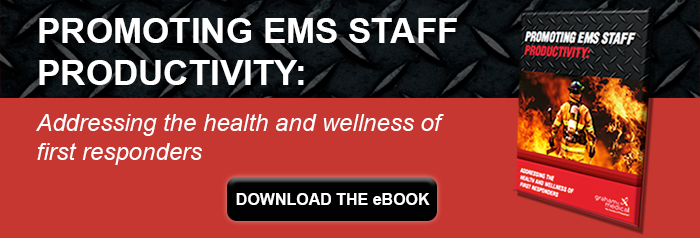 Research has shown that EMS workers experience increased stress that develops either as a result of one particular incident that left a major impact on them or the overall accumulation of many years of stressful moments. There is no doubt that the stress has a strong emotional impact on personnel, whether they are experienced or not.
Research has shown that EMS workers experience increased stress that develops either as a result of one particular incident that left a major impact on them or the overall accumulation of many years of stressful moments. There is no doubt that the stress has a strong emotional impact on personnel, whether they are experienced or not.
One problem with finding out how to manage these stress issues among emergency personnel is the difficulty in actually diagnosing it. EMS personnel are constantly exposed to suicide attempts, which influences personnel to commit suicide themselves.
Origins of First Responder Stress Issues
This 2014 NFPA article notes that the focus on the health of emergency responders increased after the increase in terrorist attacks. The Federal Emergency Management Agency (FEMA) tried to get behavioral health assistance for the responders. Soon, prevention programs were developed. Health experts believe that peer support programs can help prevent personnel from becoming suicidal. The daily horrors that personnel see can cause negative thoughts to develop. Many people suffer from PTSD, which can increase the likelihood of a suicide attempt. Personnel were also bothered by a victim being someone that they could identify with.
The tasks associated with the job have gotten overhauled within the last few years. EMS personnel often deal with incidents that cause severe injuries. Personnel may also deal with the risk of exposure to different chemicals, as well as traumatic events like a shooting spree. These risks cause stress. Personnel may have been reluctant at times to talk about the stress because they felt that they may be looked at as vulnerable. Behavioral health advocates are hopeful that the efforts to promote awareness will lead to personnel being more open about how they are feeling.
How To Take Action
The NFPA recently added behavioral health issues into its standards. This should help enhance the perspective of EMS personnel health and lead to a more complete application of behavioral health problems. Different efforts by the NFFF and NFPA suggest that this issue is no longer being overlooked. Emergency personnel do not need to suffer or feel isolated.
Emphasis continues to be placed on emergency services and how to prevent different stress injuries. There is increased interest and awareness on this topic.
Emotional stress is just one of several health risks associated with the EMS professional. To learn about other known health risks in the EMS profession and proven ways to combat them read our recent eBook, Promoting EMS Staff Productivity: Addressing the Health and Wellness of First Responders.
Graham Medical is the manufacturer of the MegaMover® Transport Units and we are concerned about all of the health issues of our nation's first responders.

